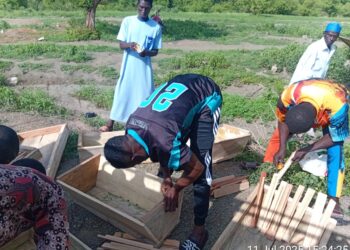Green for Change Ghana with funding support from USAID through the Feed the Future Ghana Trade and Investment Activity (GTI) has on Thursday, 6th April 2023 organized a stakeholder engagement workshop for key players in the cashew value chain within the West Gonja municipality under the “Building Capacity of Smallholder Cashew Farmers on Harvest and Post-Harvest including Nut Quality” project.
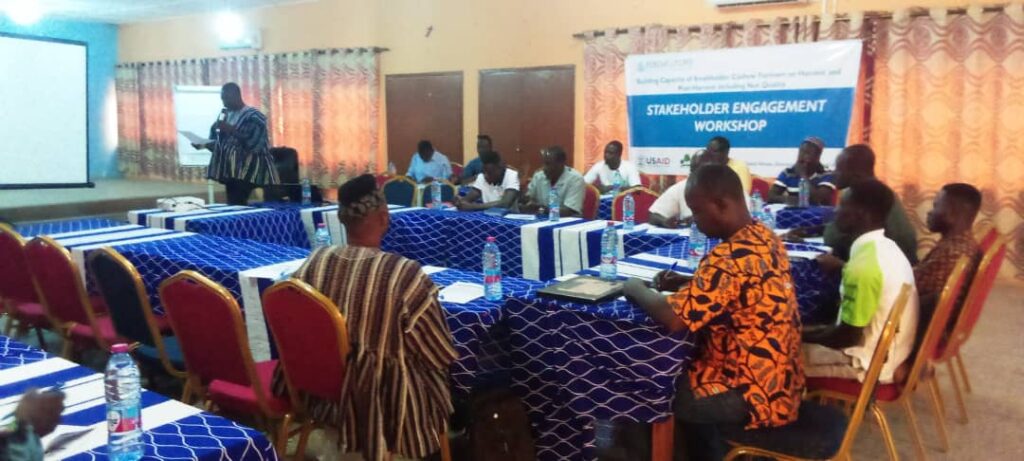
The stakeholder engagement workshop was aimed at creating awareness of the project as well as highlighting the main activities and interventions to be implemented within the project zones of influence.
Speaking at the event, the Executive Director for Green for Change Ghana, Mr. John Balankoo Sumbo indicated that “over 88% of cashew was produced on smallholder’s farms ranging in size from 0.8ha to 3.0ha, however, the income potential from this cash crop was not being fully realized due to low yield as most farmers lack knowledge of good silvicultural and post-harvest practices, thereby limiting their ability to increase productivity.
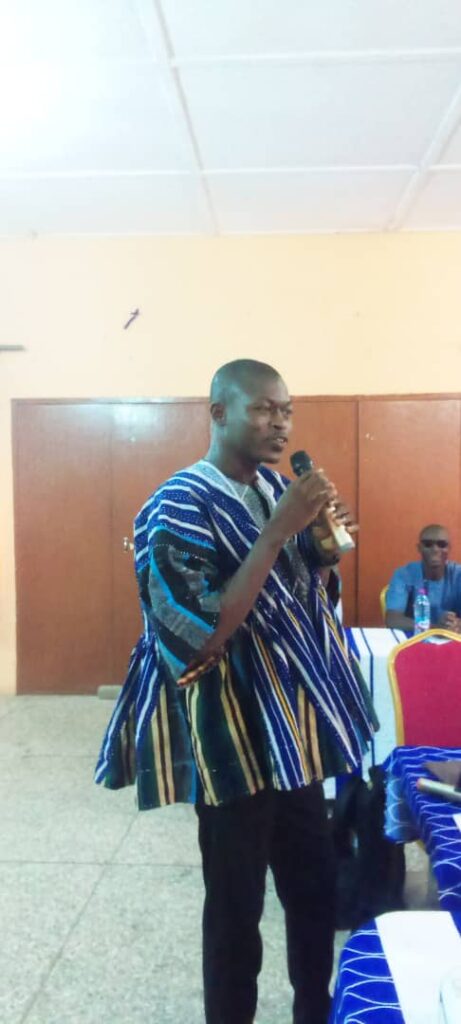
He added that farmers have a poor understanding of cashew markets and compete rather than cooperate at the farm gate to sell to middlemen
Mr. Sumbo disclosed that the project will directly train 300 cashew producers on harvest and post-harvest management techniques, nut quality including quality parameters such as nut count, defective rate, and moisture content as well as negotiation, entrepreneurship, and access to the improved market.
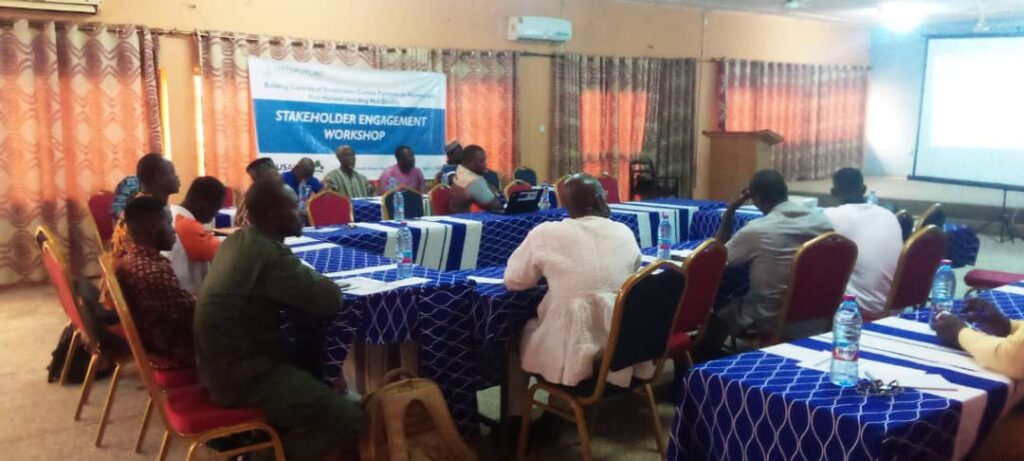
In addition, 30 lead farmers drawn from the pool of beneficiaries will be further trained on good agricultural practices in cashew production and will be available in their communities to support their peers in the adoption of best practices in their cashew orchards.
The project according to Mr. Sumbo will be implemented over a six-month period across six (6) cashew production communities in the West Gonja Municipality in the Savannah Region, namely; Soalepe, Bunyanto, Achubunyor, Jonokponto, Taliorpe, and Busunu.
When asked why cashew, Mr. John Balankoo Sumbo said “Cashew because it is one of the fast-growing cash crops in the Municipality, and with cashew, the input cost is low unlike cereal crops like maize”
He added that “cashew starts fruiting three years after planting and farmers can integrate beekeeping to enhance pollination and also make additional income from the sale of honey”
He lamented the rate at which some cashew buyers and middlemen buy cashew without considering basic parameters but blamed that on the lack of improper regulations or data on cashew buyers in the area, therefore, making farmers who follow the basic parameters lose interest because they buy the same price as compared to those farmers who don’t follow these parameters.
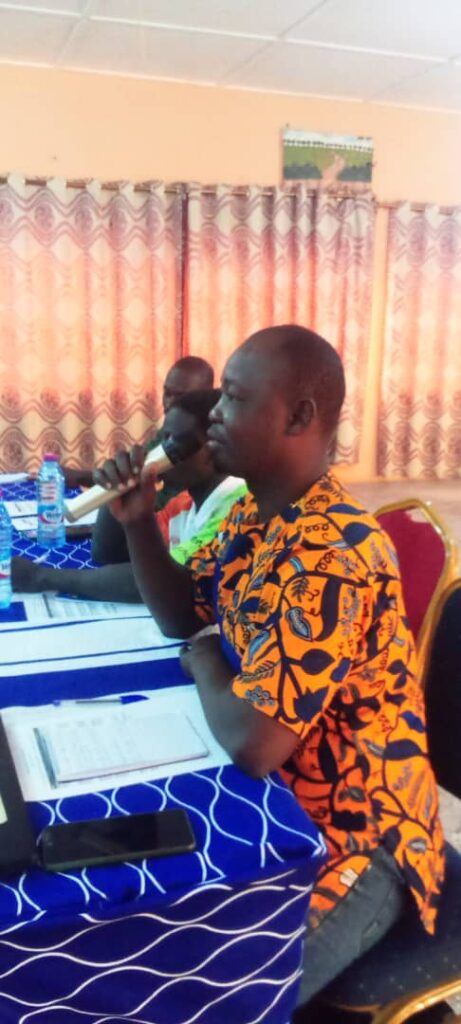
Adding to the challenges faced by cashew farmers, Mr. John said climate change can’t be overlooked in cashew farming and therefore encouraged farmers to use improved planting materials and adopt climate-smart complimentary activities to sustain yields even in the midst of climate changes.
Mr. Sumbo in closing remarks indicated that the project Team was open for advice, suggestions, and support from stakeholders, particularly NGOs working on similar interventions in the landscape, the district department of agriculture, the Forestry Commission, and the district assembly among others that will make the project achieve its intended goal of supporting farmers to improve the quality cashew nuts for the required market to increase their income.
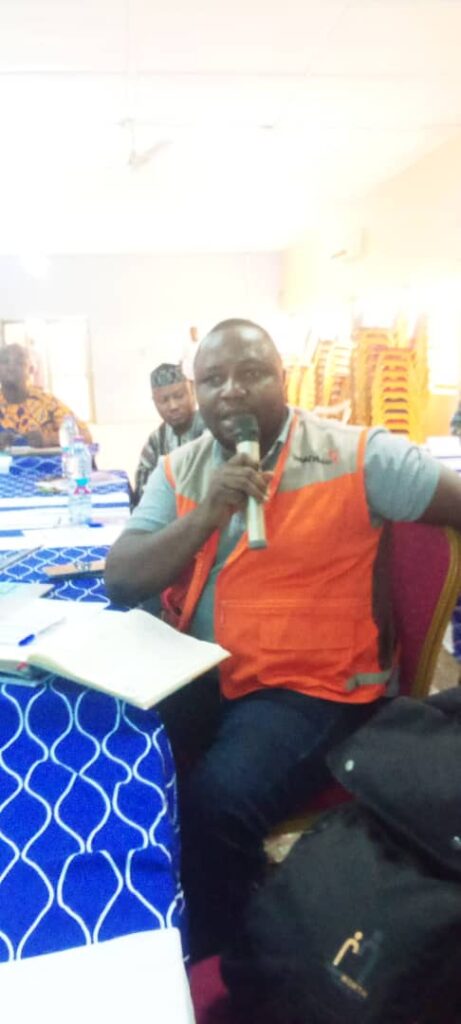
The stakeholder engagement workshop brought together participants from various institutions including traditional authorities, civil society organizations, non-governmental organizations (NGOs), cashew union representatives, government officials, cashew traders, beneficiary communities, etc.
Source: Padfm.com.gh/Gogu Edwin/0555588660
















